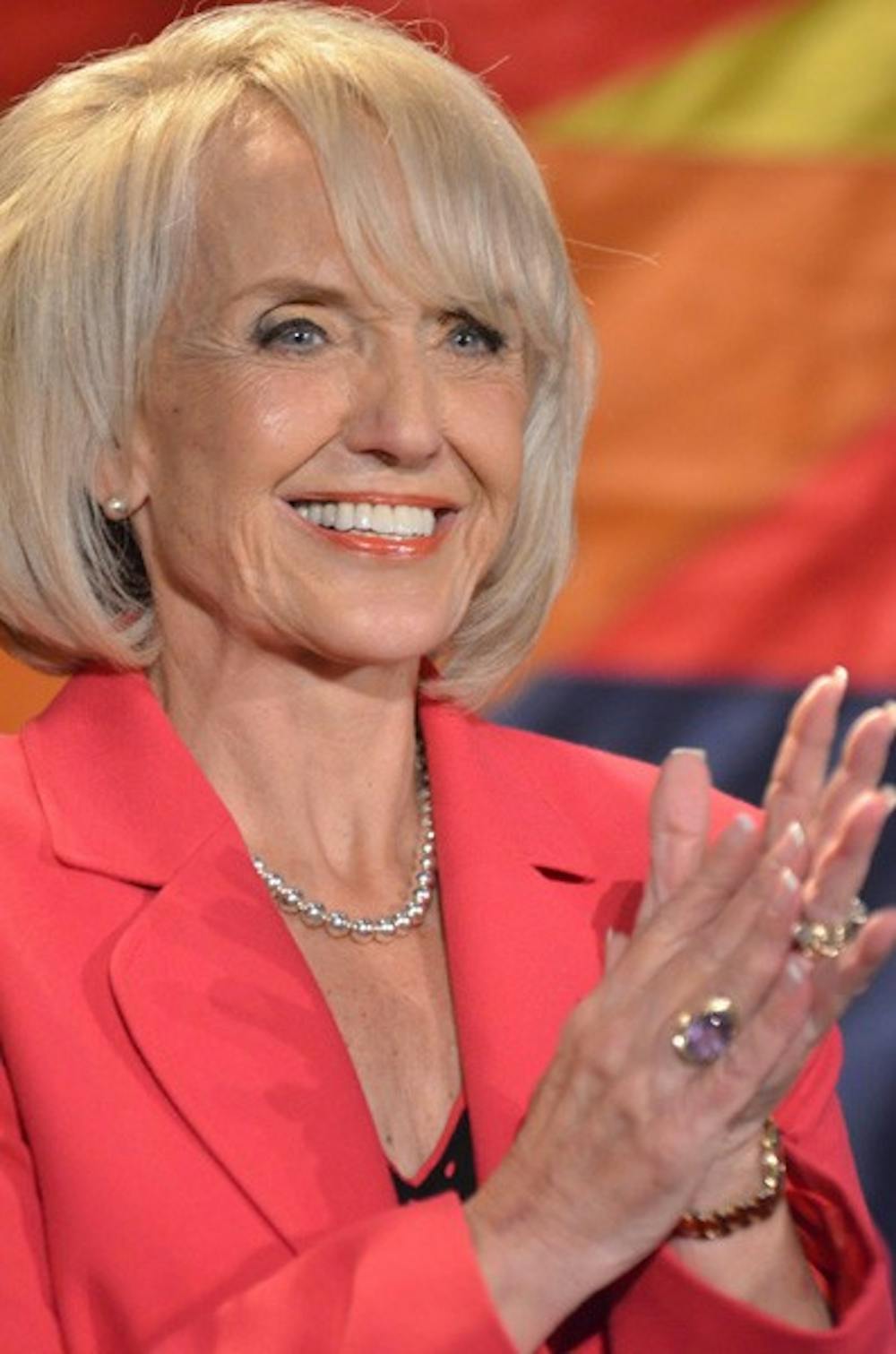Gov. Jan Brewer’s policy agenda for the year labels education as one of the four cornerstones for a prosperous Arizona.
The agenda released last week calls for rebuilding the cost structure of the university system and investigating lower-cost models for higher education, such as online education and the creation of a four-year state college system, among other suggestions.
Brewer hasn’t yet released specific plans to achieve or fund these ideas, and she acknowledged more cuts to education are approaching because of the financial crisis Arizona is facing.
Brewer said at a Monday press conference that the state is doing everything possible to maintain quality education in Arizona despite fiscal hardship.
“There is nothing more important to me than education,” Brewer said. “I have said again and over again that I will not sign a budget that will take funds from education in order to meet other federal mandates.”
Brewer’s budget proposal, released Jan. 14, would keep budgets for K-12 education at about the same level, but higher education would be cut about $170 million.
Brewer also said in her policy agenda that increasing tuition and cutting programs are not solutions to the budget crisis, but she didn’t offer any alternatives for the universities if funding is cut for the next academic year.
ASU already employs some of the suggestions made in the policy agenda, including the use of online education.
The University currently offers 20 degrees fully online, including undergraduate and graduate programs, and plans to add more in the coming semesters, according to ASU Online director of communications Russ Knocke.
“We are moving quite aggressively to grow both the quality and quantity of our programs,” Knocke said.
Although the online program is growing rapidly, Knocke said reducing University spending is not the reason ASU is expanding it.
“Online [programs] are a natural extension of a New American University and its impact on the University and the world,” Knocke said. “There are millions of adults … who have some college credit but no degree to show for it. Online presents us with an opportunity to reach them.”
ASU registrar LouAnn Denny said the recently approved academic calendar for 2012-2013 will help the online program grow further by offering more classes online.
However, Knocke said he doubts the ability of online education to cut costs at ASU regardless of expansions.
There are other costs associated with online programs, especially in the area of development, that would likely cancel out any savings from eliminating the need for a physical building, Knocke said.
“I suppose … there are instances where it would be advantageous from an accounting perspective,” Knocke said. “But it really comes down to the specific program.”
In her agenda, Brewer also suggested increasing the use of two-plus-two programs, which allow students to complete their first two years at a community college then continue to earn a four-year degree at a university.
Another suggestion was the creation of regional campuses with lower tuition options.
Both of these ideas were mentioned at a meeting of the House Committee for Higher Education, Innovation and Reform last week, but with no firm ideas or decisions discussed in depth at the meeting or in Brewer’s agenda.
By investigating and implementing some of these ideas, Brewer said higher education reform in Arizona is possible.
“We must continue to encourage efforts that allow our universities to be strong, focused enterprises with more graduates with higher skills, more choice in ways to learn, less dependency on buildings, and less bureaucracy,” Brewer said in her agenda. “While these goals are ambitious, they are attainable.”
Reach the reporter at keshoult@asu.edu





